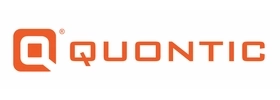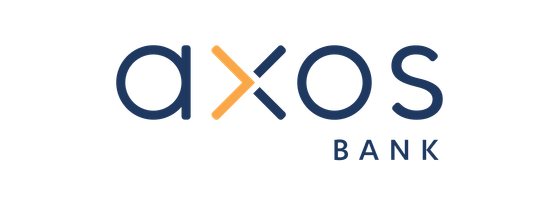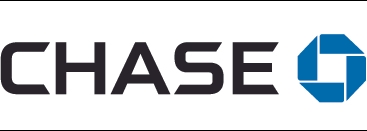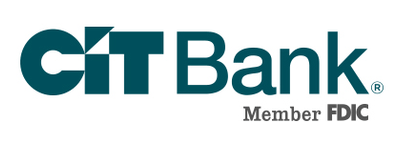Bank Fees: 9 Common Types and How to Avoid Them


Our evaluations and opinions are not influenced by our advertising relationships, but we may earn a commission from our partners’ links. This content is created by TIME Stamped, under TIME’s direction and produced in accordance with TIME’s editorial guidelines and overseen by TIME’s editorial staff. Learn more about it.
Banking has evolved into a miracle of the modern economy. It’s fast, efficient, and—with the advent of online and mobile banking—incredibly convenient. But one thing banking isn’t is free!
Blended into that mix, almost inconspicuously, is a series of fees that could add up to serious money over one year. This is multiplied if you have several accounts through your bank, including checking accounts, savings accounts, and credit cards.
In this article, we’re going to discuss nine common types of bank fees, and how to avoid them.
Fees vary from bank to bank. Not every bank charges all common fees, and some add a few that are unusual. Here are nine of the most routine ways banks extract money from customers:
Banks charge these to maintain certain accounts. Most typically, maintenance fees apply to checking accounts. That’s because checking accounts permit more activity than other accounts, like savings accounts and money markets, which are less likely to charge a monthly maintenance fee.
Most banks either operate their own network of ATMs or participate in large third-party ATM networks. Transactions completed through those ATMs are usually fee-free. But if you make a transaction at an out-of-network ATM, the bank may charge you a fee. The fee can range between $3 to $5 per transaction, which can become serious money if this becomes a frequent practice.
Adding insult to injury, the owner of the out-of-network ATM may also charge you a fee, resulting in two fees for the same transaction.
Certificates of deposit (CDs) are what are known as time deposits. That’s because you invest your money in a certificate for a specific amount of time, which can be anywhere from three months to 10 years. The bank agrees to pay a fixed interest rate during the entire term of the certificate. But if you need to withdraw funds from the CD, or liquidate it entirely, the bank will charge an early withdrawal penalty.
First Citizens Bank charges a penalty equal to three months’ interest on its high-yield 11-month CD. But the specific amount of the penalty can vary by the CD term.

For example, the same bank that charges three months’ interest for early withdrawal on a certificate maturing in less than one year, may charge six months’ interest on a CD with a longer term.
Many banks limit the number of transactions you can have in an account. This is common with savings accounts and money market accounts, which used to be limited to six withdrawals per month by Federal Regulation D. Some banks kept the limit anyway. If yours is one of them and you exceed the transaction limit, you may be subject to an excessive fee, typically between $10 and $30 per transaction.
Checking accounts may also have activity limits. For example, a checking account may limit you to no more than 100 transactions per month. If you exceed the limit, you may be subject to a per-transaction fee on the excess. That can be anywhere from $2 to $10 per excess transaction.
If you make transactions against a bank account that exceeds the balance, you will be charged an overdraft fee at many banks. Since this is a per-transaction fee, it will be applied to as many transactions as you have that overdraw the account. Some banks even charge a daily fee that will be applied each day your account is overdrawn.
More commonly referred to as a non-sufficient funds fee, or NSF, this is a fee that will apply if you run a charge against your account but don’t have sufficient funds to cover it. The bank will deny the payment and impose the NSF fee.
For example, Quontic Bank charges an NSF fee of $10. As NSF fees go, that’s on the low end of the scale. Many banks charge fees as high as $35 for an NSF.

These are fees a bank will charge when you either initiate or receive a wire transfer. Unlike ACH transfers—which charge no fees—wire transfers involve fees owing to the higher level of complication, especially with international wire transfers.
As an example of wire fees, U.S. Bank charges $20 for incoming domestic wires, $30 for outgoing domestic wires, $25 for incoming international wires, and $50 for outgoing international wires.
This is what you might refer to as a “fine print charge.” Though it isn’t commonly imposed, some banks do list this fee in their disclosures. If they do, you may be subject to the fee if you close your account within a certain amount of time.
For example, the bank may specify that if you close your account within 180 days, you’ll be subject to an early account closing fee. It can range between $25 and $100.
How to avoid an early closure fee: Though this is an admittedly unusual fee, you can avoid it by being aware of the provision and being certain you plan to keep the account at least long enough to avoid the fee.
All states have laws governing inactive financial accounts. Known as escheatment, it’s a state-level requirement to deal with abandoned accounts. The funds in the account are transferred to the state where the account is located, while the financial institution takes steps to locate the account owner. Banks will charge a fee for this process.
How to avoid dormancy fees: This is another unusual fee that will be charged in nontypical circumstances. It’s most likely to happen when the account holder either dies or moves away. But there are cases where the fee is imposed because the account has been inactive for an extended period of time.
If you have accounts that you use infrequently, be sure to make a transaction or two each year. That should be sufficient to avoid the imposition of dormancy fees.
There are a number of ways to avoid pesky bank fees, including the following:
It’s rare to find a financial institution with no fees whatsoever. Most will charge fees for certain activities, like wire transfers, research, or paper statements. But it is possible to find banks offering accounts that have none of the typical fees.
For example, Axos Bank’s Essential Checking account has no monthly maintenance fees, no overdraft or non-sufficient funds fees, and unlimited domestic ATM fee reimbursements. Also helpful: The account imposes no minimum monthly balance requirement.

Many banks that charge monthly maintenance fees will waive them if you maintain a minimum balance in your account. It’s also possible to have the fees waived by maintaining a certain minimum balance in all accounts you have on deposit with the same bank.
For example, Chase Total Checking has a $12 monthly service fee. That fee can be waived if you maintain a minimum balance of $1,500 in the account, or a minimum of $5,000 in the checking account and other accounts held with Chase. They’ll also waive the fee if electronic deposits of at least $500 are deposited into the account each month.

Most banks that offer wire transfers charge fees for the privilege. But there are a handful that allow you to send or receive wire transfers free of charge. An example is Axos Bank. It has no fee for either sending or receiving a wire transfer. The limitation, however, is that Axos only handles domestic wires, not international ones.
If you frequently need to send or receive wire transfers, it may be worth having an account with a bank that does not charge wire transfer fees.
By linking your checking account to a savings account or money market at the same institution, you may be able to set up overdraft protection. The bank or credit union will withdraw funds from the linked savings account to cover any shortfall in your checking account, avoiding both overdraft and NSF fees. Many banks and credit unions offer this benefit.
Many banks offer the free use of your ATM card. But if you use an out-of-network ATM you may be charged a fee for the use of that machine by its owner. You can get around that problem by opening an account with a bank that provides reimbursement for out-of-network fees.
CIT Bank’s eChecking account does not charge any ATM fees. The bank will reimburse you for up to $30 per month in fees charged by other banks. Meanwhile, you can take advantage of its in-network ATMs through the Allpoint network, giving you access to more than 43,000 fee-free locations.

Before you open a checking account, find out what the transaction limit is. If you believe you will exceed that limit on a regular basis, open an account with a bank that does not charge this fee.
Live Oak Bank offers checking with no transaction fees. That includes both deposits received and checks paid.
While it’s true that CDs often pay higher interest than savings accounts and money markets, they’re far less liquid. If you’re investing your money in a two-year CD to get a higher rate of return, you may need to make provisions to access other sources of funds during the time the CD is in force.
That will mean maintaining a savings account or money market account with sufficient funds to cover anticipated financial needs between now and the time the CD matures. This type of arrangement will enable you to avoid costly prepayment penalties.
Bank fees are everywhere, sometimes tucked out of sight in fine-print agreements you may approve when you sign up for an account. As a matter of responsible financial management, you owe it to yourself to do all you can to avoid as many fees as possible.
Your first line of defense is awareness. Knowing the fees your bank charges and when they are imposed will enable you to minimize the damage. Carefully match your typical banking activity with the fee structure a bank has in place. Find the bank with the least number of fees for your style of banking.
Choose correctly and you can reduce the amount you’re paying for banking fees each year by hundreds of dollars.
Many banks provide an opportunity to waive monthly service charges and other fees if you maintain a minimum account balance. That may involve a minimum balance for a checking account, but it may also extend to all balances you have on deposit with that bank. That can include the balances in multiple checking accounts and savings accounts.
Other banks will waive certain fees if you have a lending relationship. That can include a home mortgage, car loan, or one or more credit cards.
It’s extremely rare to find a bank with absolutely no fees of any kind. The best option for most consumers is to find a bank with relatively few fees. For example, a bank may offer no-fee checking but still charge fees for wire transfers and other activities.
It may be possible to eliminate some bank fees either by maintaining minimum required account balances or through certain loan arrangements. But it is not possible to negotiate fee levels with a bank, as you might dicker on the price of a used car.
Banks are heavily regulated and are required to maintain a fee structure that treats all customers equitably within the standards set for various account classifications.
The information presented here is created by TIME Stamped and overseen by TIME editorial staff. To learn more, see our About Us page.



